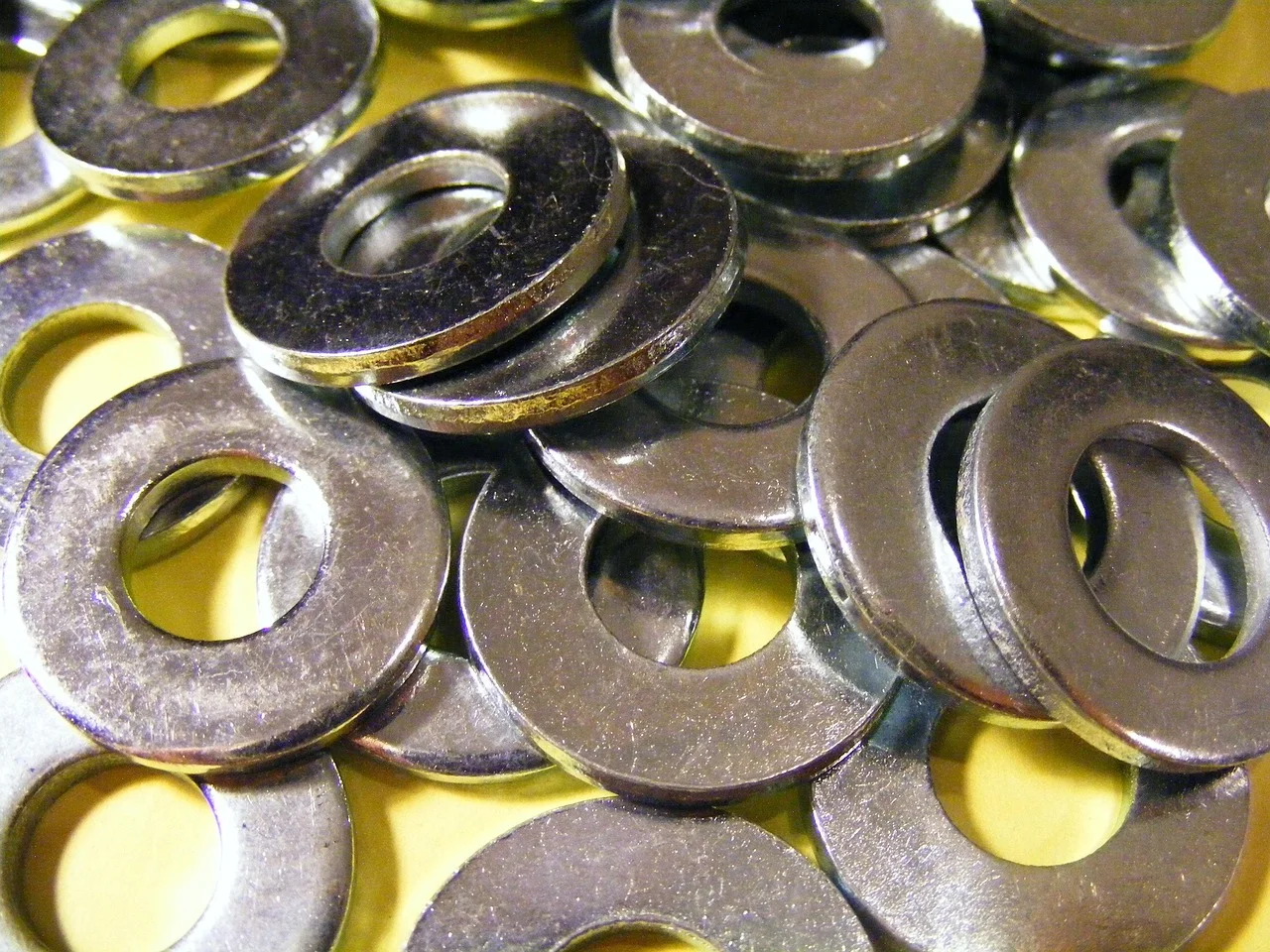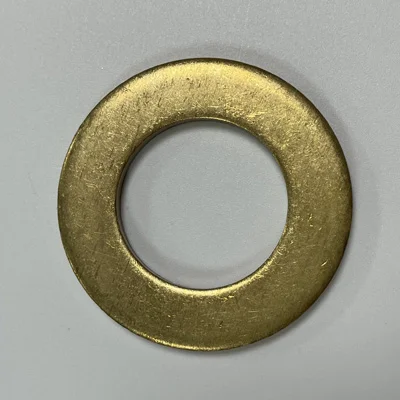caTEGORIES
Tags
Exploring the Compatibility of Washers with Various Fastener Types

Posted: June 13, 2025
Categories: News
Tags: news
Washers may look like small, simple parts, but they are super important for making strong, lasting connections in fastening systems. These tiny pieces spread weight, protect surfaces, stop loosening from shaking, and guard against rust. They are used in industries like construction, car making, and machinery. A 2025 report by MarketsandMarkets says the global fasteners market, including washers, will grow from $94.2 billion in 2024 to $112.8 billion by 2029. This growth comes from the need for cars and buildings. This guide talks about washer types, their uses, and how to pick the right one for bolts, screws, and tough settings. Whether you’re fixing machines or doing a DIY project, knowing about washers helps make connections stronger and longer-lasting.
What Do Washers Do in Fastening Systems?
The Job of Washers in Fastening Systems
Washers are key parts in fastening systems. They sit between fasteners, like bolts or screws, and the surfaces they hold together. Their main job is to spread the weight of a fastener evenly. This stops damage to the surface and makes the connection steady. Washers also reduce rubbing and wear, which helps fasteners and materials last longer. Plus, special washers can handle problems like shaking or keeping tension when things move.
Types of Washers and Their Uses
Flat Washers
Flat washers are the most common type. They give a smooth surface to spread weight over a bigger area. This lowers stress on soft materials like wood or plastic, which can bend under pressure. For example, Flat Round Washers DIN 125A come in different sizes and finishes, like zinc-plated or galvanized, to fight rust. They follow DIN 125A standards, which means they are strong and reliable for many uses.
Spring Washers
Spring washers are bendy and keep tension in a connection. They’re great for places where shaking might loosen fasteners over time. They push against the fastener constantly, which stops it from coming loose.
Lock Washers
Lock washers add extra safety by stopping fasteners from turning loose due to shaking or twisting. They’re perfect for places with lots of movement, like machines or cars. Their special shape keeps fasteners tight once screwed in.
How Compatible Are Washers with Bolts?
Knowing how bolts and washers work together is important for making strong, lasting connections.
Factors That Affect Washer-Bolt Compatibility
Material Matching for Bolts and Washers
The material of bolts and washers must match to keep the connection strong. For example, stainless steel bolts should go with stainless steel washers to avoid rust from mixing metals. This is super important in wet or chemical-filled places. Also, the washer’s hardness should match the bolt’s. A softer washer might bend under heavy weight.
Size and Shape Matching
The washer’s size must fit the bolt perfectly. The inner hole of the washer should match the bolt’s shank without being too loose. The outer part should cover enough surface around the bolt head to spread weight well.
Common Uses of Bolts with Washers
Heavy-Duty Settings
In tough places like buildings or big machines, washers are key. They spread weight evenly across joints. For example, Hexagon Head Bolts DIN 931 paired with flat washers make strong connections that handle heavy forces. These bolts are tough and resist rust.
Rust-Proof Connections
For things exposed to water, like boats or outdoor gear, use zinc-plated or stainless steel washers with matching bolts. This stops rust and keeps connections strong for a long time.
How Do Screws Work with Washers?
Picking the right washer for screws is just as important as choosing the right screw for a good connection.
How Screws Pair with Different Washers
Self-Tapping Screws and Washer Choices
Self-tapping screws cut their own threads as you screw them in. They work well with flat or lock washers, depending on the job. For example, when fastening metal sheets, flat washers spread pressure evenly, while lock washers stop loosening.
Machine Screws with Locking Features
Machine screws often need tight connections, especially in moving parts. They work well with lock washers or nylon insert nuts. These keep things steady in shaky or frequently used setups.
Improving Screw Performance with Washers
Washers make screws work better by fixing issues like uneven surfaces or damage during tightening. They also block water when used with sealing materials, keeping connections safe.
For top-quality fastening solutions, contact QEWIT today. Their wide range of products and great support ensure strong performance in many industries.
Specialized Washer-Fastener Combinations
Using Washers in Shaky Settings
Washers are super important in places with lots of shaking, where fasteners might loosen. They act like a shield against loosening caused by movement. Lock washers, for example, are made to stop turning from shaking or twisting. Their special design grips the fastener and surface tightly, keeping the joint steady even in active conditions.
Spring washers also help in shaky settings. They push against the fastener all the time. This keeps the connection tight, even if parts relax or move slightly. Whether you’re working on machines or car parts, adding special washers makes things safer and more reliable.
Rust-Proof Solutions for Tough Settings
In harsh places with water, chemicals, or extreme heat, rust-proof solutions are a must. Washers made of stainless steel or coated with zinc plating or hot-dipped galvanization protect against rust. For example, Flat Round Washers DIN 125A meet DIN 125A standards and have galvanized finishes for strong rust protection. These are great for boats or outdoor structures.
When paired with rust-proof fasteners, these washers create a strong barrier against tough conditions. Choosing the right washer material and finish ensures long-lasting performance and less need for fixes.
Recommendations Based on QEWIT Products
The right washer can make the difference between a strong, lasting connection and a weak one.
QEWIT’s Range of High-Quality Washers
Features and Benefits of QEWIT Flat Washers
Flat washers are super useful in fastening systems. They spread weight evenly, reducing stress on soft materials like wood or plastic. QEWIT’s Flat Round Washers DIN 125A are a great example. They come in materials like carbon steel and stainless steel, with finishes like zinc plating or hot-dipped galvanization. These fight rust and work in tough settings. They meet DIN 125A standards, ensuring quality and reliability for many jobs.
Using flat washers prevents surface damage and makes joints stronger. They also hide small flaws around bolt holes, making things look cleaner.
Advanced Lock Washer Solutions by QEWIT
Lock washers add extra safety in systems that shake or move a lot. Their design stops loosening from turning forces. They’re great for machines or car parts, keeping joints tight.
QEWIT offers lock washers made for different industries. Their products follow strict quality rules and international standards, ensuring steady performance in tough conditions. For jobs needing extra safety, lock washers are a must.
Choosing the Right QEWIT Washer for Your Fastener
Picking the best washer depends on the fastener and job needs. For bolts in heavy or stressful settings, flat washers spread weight and protect surfaces. In shaky setups like engines or machines, lock washers stop loosening.
Material matching is key. Stainless steel bolts need stainless steel washers to avoid rust. Zinc-plated fasteners work best with zinc-coated washers for even rust protection. The washer’s inner hole must fit the fastener’s shank snugly, and the outer part should cover enough surface for good performance.
For top-quality fastening solutions, contact QEWIT today. They offer over 30,000 product lines and great support to meet many industry needs.
FAQ
Q1: What washer is best for shaky settings?
A: Lock washers are great for shaky places. They stop turning caused by shaking or twisting.
Q2: How do I pick a rust-proof washer?
A: Choose washers made of stainless steel or coated with zinc plating or hot-dipped galvanization to fight rust.
Q3: Can flat washers work with all fasteners?
A: Flat washers are flexible but must match the fastener’s size and material for the best results.


